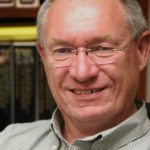
Worship Leader Q&A: Lessons Learned from Livestreaming Church
*Editor’s Note: Because of the COVID-19 pandemic, many churches found themselves needing to livestream church services for weeks and months at a time. Entire church staffs worked hard to make this happen, but for many churches a tremendous weight of responsibility fell on the worship minister. I was able to recently catch up with four worship ministers and ask them what they learned during this season. The four worship ministers were Corey Scott of Springfield, MO; Dave Stovall of Franklin, TN; Luke McCoy of Marion, IA; and Shawn Frazier of Murfreesboro, TN. For Part 2 of this conversation, click here.
Q: Any surprising silver linings to doing church online?
Dave: This was my silver lining: I told my team, “The first time you hear your voice or instrument live, you’re going to freak out. You’re going to think you sound terrible. Here are some exercises to help with that.” The result has been that everybody on my team has gone up multiple levels in their musicianship. It’s been really cool. Same with our sound team.
Luke: I think the production level went up. After all, if we don’t sound decent, they’re going to keep scrolling. So, production value. More importantly, the gospel just really got out there. By going online, we have the ability to reach more people than ever before.
Shawn: One blessing for me has been suddenly worshiping with some people who aren’t living in town. People joining from multiple states who encourage us with comments and notes.
Corey: Before the pandemic, we would have three services. It was a super tight, fast-paced program. We’re counting by the seconds. Then, mid-summer, we were able to move into the new worship center. God used that to allow us to have more people than otherwise. We also went to two services, with fifteen minutes longer for each service. We brought back from the annals of history the “communion devotion.” Then, when we got the stay-at-home order, because of our new service format, it was really nice that we could really take our time with communion.
We have heard from so many people in our church because we reached out and asked for devotional thoughts. That’s also been a huge win.
Q: As a worship pastor, what are some concerns you have about your people, especially the ones you haven’t seen in person for a while?
Shawn: The biggest concern is that they would walk away and be lost from the kingdom. It’s not that they wouldn’t attend my church anymore. But that their soul would become lost because they really did just stop. I fear that someone is just going to be gone from the kingdom. I also think about marriages pretty often. Marriages that were strained under the pandemic—now they’re really struggling.
Dave: We’ve got some people with health problems, so they haven’t been to the church since this started. I’m worried about the same thing you said, Shawn. Our church does Celebrate Recovery, and getting together in person to share what you’re going through is the best way to strip the enemy’s power over you. Nothing is as effective as sitting there in person, connecting. Finding them there and helping “create the path.”
Corey: I like that word picture of creating a path. We can’t force anyone to connect but we can blaze a trail for them.
Luke: I feel a couple pressures: 1) Have I taught my people how to worship? Have I really equipped them on how to worship? 2) There are people who haven’t been able to come back. Some have passed away or are in the hospital. All they had was online. They’ve been with us. So the pressure is, whether they’re in the room or in their room, still leading them in worship and realizing that God is bigger than our limitations.
Corey: I’m concerned about the new norm of lack of participation. If you’ve ever read the book Introverts in the Church, the author Adam McHugh shows how so many of our corporate expressions of worship are geared toward the extrovert. Yet some expressions of worship we see in the Bible are actually geared more toward an introvert. For example, Habakkuk said, “The Lord is in his holy temple; let all the earth be silent before him” (Hab. 2:20). So, some introverts are probably loving doing church at home.
At the same time, lots of people are not being stretched. It takes creativity to call people to obedience and engagement in the online setting. True, people can be just as disengaged in the room. The point isn’t just attendance. But we need to remember that engagement isn’t just a thumbs up on social media. How can our people live out the mission online? If you’re stuck online, what can you do? How can we call people to engagement and application?
Q: For people who join the livestream from their living rooms, what are some things about corporate worship they are still able to experience?
Corey: One of the blessings of corporate worship people can still gain online is that they are able to receive content: teaching, Scripture, prayer. My job as a worship minister is to put prayers into the minds and mouths of people. In Acts 2, we read that they were devoted to the prayers. I’m helping them pray the same words at the same time. I can put language in their mouths that they can express. And that’s part of discipleship. And we can do that online.
Luke: One thing we can still do online is really focus people’s attention. Yes, there are distractions in the home, but there can also be a lot of distractions in the church building. When I am looking at that camera, I am literally talking to the people at home. When I do that, I’ll get texts from the people I’m thinking about. It’s a good reminder of just how many people are really paying attention.
Dave: A friend of mine was actually able to be freer in his house than at church. At church, he’d found himself looking around and not really engaging. At home, he found himself uninhibited and able to really sing out. So, perhaps for him, it’s a season of growth which he can bring back into the gathering.
Q: What can the livestream crowd lose if they’re not careful?
Shawn: When you’re in your home, you can lose that part of your body being involved. Being in your pjs, recliner, eating waffles—all that is awesome. But I’ve had the thought that we could be losing the inclusion of our bodies. Your soul, your heart reacts to what you do with your body.
Corey: God created us to be whole people. 1 Thessalonians 5:23 prays that God might “sanctify you through and through. May your whole spirit, soul and body be kept blameless at the coming of our Lord Jesus Christ.” Our bodies, minds, etc. are meant to be a cohesive movement.
God created us to be whole people. 1 Thessalonians 5:23 prays that God might “sanctify you through and through.”
Luke: I’ve heard so many people say, “I love waking up and getting coffee while first service is going.” I think, How can you be engaged and worship? But then they qualify it by saying, “But when I’m here, there’s something different.” I think they can sense a specific connection.
And there is the very real possibility that people lose the accountability to showing up. Maybe some are on the verge of losing faith. There are people on the periphery we could lose.
Shawn: In Ephesians 5, Paul explains that one of the ways we are filled with the Spirit is by “speaking to one another with psalms, hymns, and songs from the Spirit. Sing and make music from your heart to the Lord” (Eph. 5:19). Online, we can miss the blessings of singing together.
Also, for so many people, it’s been so convenient getting in the habit of not gathering anymore. We’ve got to be aware of our American addiction to convenience.












